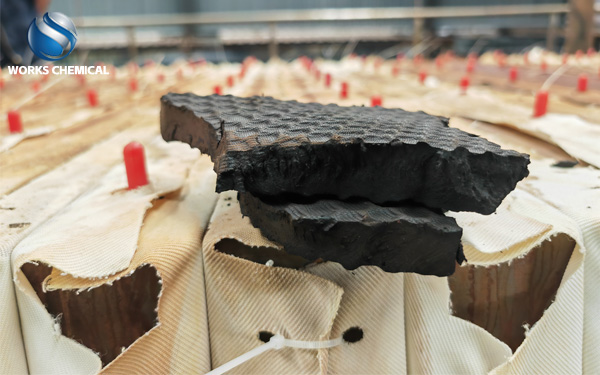
Sludge treatment does have some difficulties, and the use of traditional agents for sludge treatment, it will indeed face high costs and corrosion equipment and other problems. Here is a detailed analysis of these issues:

One. High cost of traditional medicine
Traditional sludge treatment agents, such as polyaluminum chloride, polyaluminum ferric chloride, ferric trichloride, lime, anionic polyacrylamide, cationic polyacrylamide, etc., are usually used in large quantities. For example, every 10,000 tons of sewage treatment, may produce 1 ton to 1.2 tons of dry sludge, for sludge dehydrator, need to use cationic polyacrylamide per ton of dry sludge accounted for up to 0.6%, if the market price of 30,000 yuan/ton to calculate, then the cost of flocculant added is relatively high. In addition, for the plate and frame filter press, it is also necessary to use ferric chloride and calcium oxide and other agents, which will increase the cost of sludge treatment.
Two, traditional chemical corrosion equipment
Traditional agents are not only used in large quantities, but also have the risk of corroding equipment. Some agents, such as strong acids and alkali, may cause corrosion to sludge treatment equipment, shorten the service life of the equipment, and increase the maintenance and replacement cost of the equipment. This will not only affect the efficiency of sludge treatment, but also may cause secondary pollution to the environment.
Three, solution
In order to solve these problems in sludge treatment, the following solutions can be considered:
Use of sludge conditioner: sludge conditioner has the advantages of convenient filling, easy maintenance, reducing loss, environmental reuse and so on. The dosage is relatively small, usually 4 kg per ton of absolute dry sludge can be added, much lower than the dosage of traditional iron salt lime conditioner (often greater than 200 kg). This can not only reduce the cost of the agent, but also reduce the risk of corrosion of the equipment.
Optimize the sludge treatment process: By improving the sludge treatment process, improve the efficiency and quality of sludge treatment, so as to reduce the use of chemicals. For example, advanced sludge dewatering technology can be used, such as plate and frame filter press, diaphragm filter press, etc., to improve the dewatering effect of sludge.
Strengthen equipment management: regular inspection and maintenance of sludge treatment equipment, timely detection and treatment of equipment failures, and extend the service life of the equipment. At the same time, choose equipment materials that are resistant to corrosion and wear to reduce the risk of corrosion of equipment.
In summary, sludge treatment does have some difficulties, and the use of traditional chemicals will increase the cost and the risk of corrosion equipment. Therefore, it is necessary to seek more economical, environmentally friendly and efficient sludge treatment methods and technical means to solve these problems.